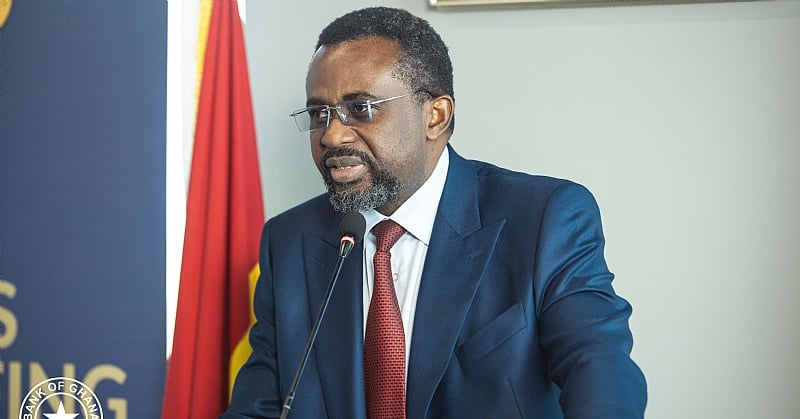Paragraph 1: A Glimmer of Hope for Ghana’s Economy
After navigating a protracted period of economic turbulence, Ghana is witnessing a resurgence of optimism. Businesses, previously hesitant to commit capital, are now exhibiting renewed confidence, and consumers, once forced to curtail spending, are gradually loosening their purse strings. This shift in sentiment is substantiated by rising consumer and business confidence indices, a testament to the growing belief in a brighter economic outlook. The resurgence in confidence signals a potential turning point, suggesting that the economy may have weathered the worst of the storm and is on a path toward stabilization and growth.
Paragraph 2: Inflation Shows Signs of Easing, But Remains a Concern
One of the key factors contributing to this renewed hope is the gradual easing of inflationary pressures. While still considerably high, inflation has shown signs of stabilizing, providing some relief to both businesses and consumers. The volatile nature of food inflation, however, poses a continued challenge. Despite experiencing substantial fluctuations throughout the past year, food inflation remains elevated, adding to the overall cost of living for Ghanaians. While the decline in non-food inflation offers a glimmer of positive news, the combined effect of both food and non-food inflation continues to exert pressure on household budgets and business operations.
Paragraph 3: Declining Treasury Bill Rates Signal Potential for Lower Borrowing Costs
Another significant development contributing to the positive outlook is the sharp decline in Treasury bill rates. This decline indicates that the government’s borrowing costs are decreasing, which could potentially translate into lower interest rates for businesses and individuals. Reduced borrowing costs can stimulate investment and economic activity, as businesses have greater access to capital for expansion and consumers are more inclined to borrow for purchases. This positive trend, coupled with the easing inflation, creates a conducive environment for economic recovery.
Paragraph 4: Complex Interplay of Interest Rates and their Impact on Lending
The dynamics of interest rates in Ghana are complex and involve a nuanced interplay of various factors. While the Monetary Policy Committee (MPC) rate has increased, typically influencing a rise in lending rates across the financial system, the concurrent decline in Treasury bill rates and the stable Ghana Reference Rate exert downward pressure on lending rates. Banks, when determining their lending rates, consider not only the MPC rate but also the prevailing Treasury bill rates and the interbank rate. This intricate relationship between different interest rate benchmarks contributes to the overall cost of borrowing for individuals and businesses.
Paragraph 5: Cautious Optimism as Economic Recovery Remains Uncertain
Despite these positive developments, the path to full economic recovery remains uncertain. The future trajectory will largely depend on how inflation behaves in the coming months, whether interest rates continue their downward trend, and how businesses and consumers respond to these evolving economic indicators. Sustained progress in controlling inflation and reducing interest rates will be crucial for fostering a stable macroeconomic environment conducive to long-term growth.
Paragraph 6: Sustaining the Momentum: Key Factors for Continued Economic Progress
Maintaining the current positive momentum requires a concerted effort from policymakers, businesses, and consumers. Policymakers must continue to implement sound fiscal and monetary policies aimed at stabilizing the economy and promoting sustainable growth. Businesses need to capitalize on the improving economic climate by investing strategically and creating jobs. Consumers, armed with renewed confidence, can contribute to economic growth by gradually increasing their spending. The combined efforts of these stakeholders will determine whether Ghana can successfully navigate the remaining challenges and solidify its path toward a robust and resilient economy. The future of Ghana’s economy hinges on the ability to sustain these recent positive trends and build a foundation for long-term prosperity.


